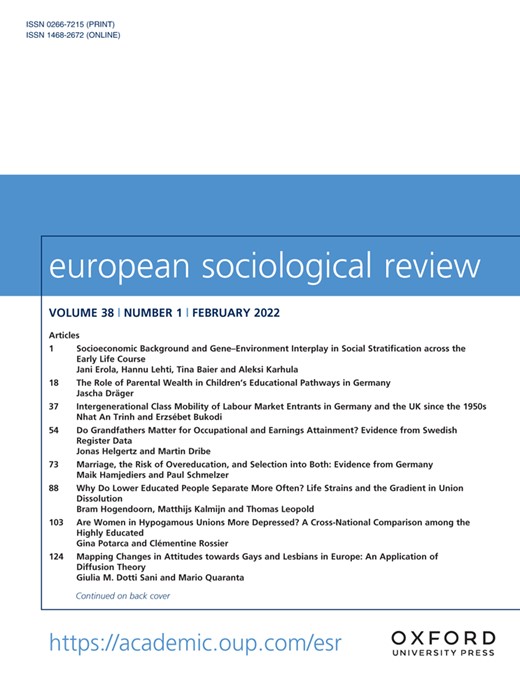-
Views
-
Cite
Cite
Jörg Hartmann, Karin Kurz, Holger Lengfeld, Modernization Losers’ Revenge? Income Mobility and Support for Right- and Left-Wing Populist Parties in Germany, European Sociological Review, Volume 38, Issue 1, February 2022, Pages 138–152, https://doi.org/10.1093/esr/jcab024
Close - Share Icon Share
Abstract
Against the backdrop of rising support for right- and left-wing populist parties in Europe, a long-standing argument has been that the more vulnerable strata of society are deprived by structural economic change as well as increasing social inequality and express their grievances by voting for radical and populist parties. Previous research has tested the thesis either based on cross-sectional data and vague proxies for past income developments or used objective short-term measures of income changes. In this study, we propose a more thorough test using longitudinal data and measures of objective relative deprivation, objective absolute deprivation, and subjective deprivation. Using SOEP data for 2016, our results show little support that those with lower incomes identify more with the populist right-wing AfD in Germany. Furthermore, we find no evidence that objectively falling behind is associated with more support for the AfD and the populist left-wing party die Linke among the less well off. Rather, support for the AfD is highest among the less well-off with stable incomes and the less well-off who perceive their incomes as having been unstable. For die Linke, support is highest among the less well-off who experienced absolute income gains and the less well-off who perceive their incomes as having been upwardly or downwardly mobile.



